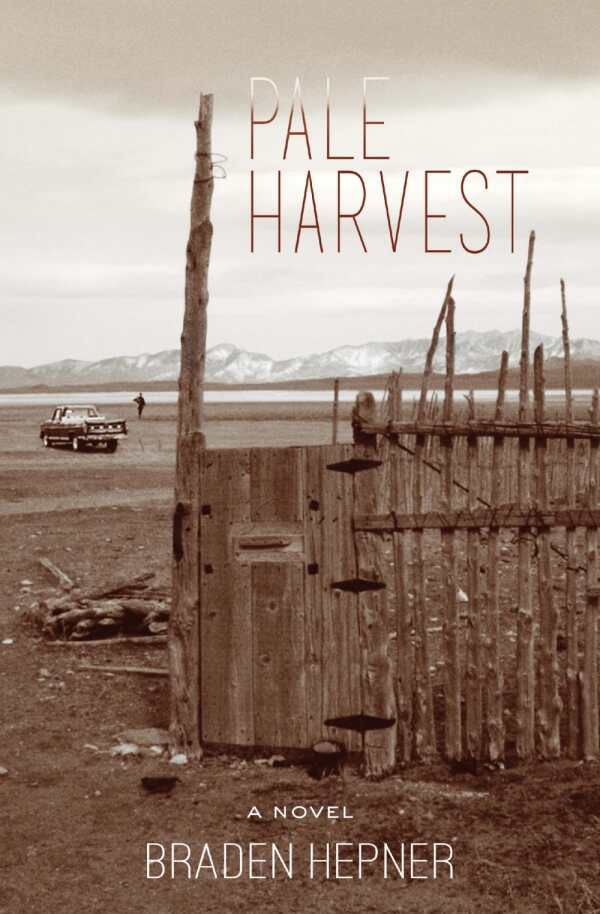Pale Harvest
This earnest paean to the backbreaking work of farming and those who do it looks intently at what legacy that life can bring.
Set in a rugged scrap of Utah, this first novel rings with the hard-scrabble tones of Steinbeck—a family trying to eke out a living from a dying farm in a dying town. Contrary to the roughshod talk of the locals, the descriptive detail of Pale Harvest is lush with unusual vocabulary and microscopic detail that combine to evoke a land and a kind of life singular to the American West.
Braden Hepner is a 2009 graduate of the Iowa Writers’ Workshop and a man once steeped in the life he describes. In the novel, protagonist Jack Selvedge works his grandfather’s farm, where he has lived since his parents’ death. He works alongside his ailing uncle and aging grandfather while his grandmother withers away in the house. The farm, like the town of Juniper Scrag, is on the decline; machines break down and are fixed with ingenuity, only to break down again. The young people of the town leave and rarely return, and those who remain yearn for something beyond the reach of the town limits. Jack wants desperately for his investment in the farm to mean an inheritance, but as his choices seem to dwindle around him, Rebekah Rainsford returns to town, lovely, grown, and on the run from her father.
Jack’s relationship with Rebekah kindles in him a passion to show her his land, but his is not the only passion kindled, and the two must face what beauty and the edge of desperation have wrought in a dying town.
Hepner lingers in the beginning of the book, setting up the infrastructure of despair that fuels the plot and the characters. The slow start pays off in a series of events that forces Jack to reconsider his faith and his upbringing. Jack is serious, a trait for which he is chided by others in the story but which allows Hepner to mine deeply into Jack’s struggle with his stasis and life.
One of the most important characters is the landscape: between a river that takes lives and a desert that hypnotizes, the setting is inextricably linked to Jack’s character, and Hepner is not spare with his description. Nothing here is uncomplicated, for all the romantic ideas one might have about farming and the people who do it.
Readers interested in a uniquely American novel will be well satisfied with this bleak yet redemptive book about the West.
Reviewed by
Camille-Yvette Welsch
Disclosure: This article is not an endorsement, but a review. The publisher of this book provided free copies of the book to have their book reviewed by a professional reviewer. No fee was paid by the publisher for this review. Foreword Reviews only recommends books that we love. Foreword Magazine, Inc. is disclosing this in accordance with the Federal Trade Commission’s 16 CFR, Part 255.

